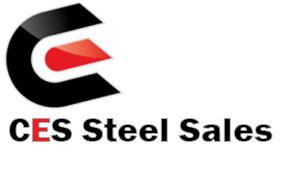Revolutionary Advances in Steel Production
The industrial revolution brought about many advances in technology, and one of the most remarkable has been in steel production. Steel is a critical material for today’s modern world, with uses ranging from construction to automotive manufacturing. Recent years have seen revolutionary advances in steel production technologies, resulting in improved efficiency and sustainability. This article will explore the latest advances in steel production and discuss how they are transforming the industry.
Steel Production
For centuries, steel has been the go-to material for a variety of uses, from housing and automobiles to construction and renewable energy. With steel production continuing to play a key role in our daily lives, engineers and researchers around the world have set their sights on revolutionizing this process with new advances.
Recent years have seen rapid strides in improving steel production methods. As such, revolutionary advancements are enabling faster production of high quality steel at lower costs. This is being achieved through the use of innovative technologies such as 3D printing and automated processes that allow for precise control over chemical composition and temperature during the manufacturing process. Additionally, more sustainable approaches are being developed that reduce emissions while producing stronger grades of steel than ever before.
With these revolutionary advances in steel production, we can look forward to further improvements in products across a range of industries, from infrastructure projects to consumer goods.
Modern Steel Production
The steel industry has seen many advances in the past few decades, making modern steel production more efficient and cost effective than ever before. Many of these revolutionary advances are due to technological advancements and the use of new materials.
In recent years, innovations such as cold rolled sheet steel have allowed for a higher degree of precision in creating steel products with greater strength than ever before. Additionally, computer-aided design (CAD) systems allow for faster production times and increased accuracy when designing products made from steel. These technologies also provide a greater range of customization options so that customers can create custom pieces according to their exact specifications. Finally, robotic welding brings with it an unprecedented level of precision and efficiency when assembling components made from steel. This technology has drastically reduced the time needed to complete projects while maintaining high quality standards.
Benefits of Advanced Steel Production
Advanced steel production has become increasingly popular in recent years, with the rise of new technology and processes. The benefits of this new form of steel production are numerous. Steel produced through advanced methods is stronger and more durable than traditional steel, providing a longer lifespan for products made from it. Moreover, advanced steel production reduces energy consumption by using less fuel when producing the metal. As a result, companies that opt for advanced steel production often save money on energy costs associated with traditional manufacturing methods.
Advanced steel production also produces higher quality materials than conventional methods do due to improved metallurgical control systems and automation-driven processes used during the manufacturing process. This helps ensure that parts produced with advanced steel offer excellent performance standards and are more resistant to corrosion or other environmental damage. Furthermore, since these processes rely on fewer resources than traditional methods do, they are usually significantly cheaper too.
The Future of Steel Production
The Future of Steel Production is an important topic for many industries, from automotive to construction. As steel is a key component in the production of many goods and materials, understanding how the industry will progress in the future is essential.
In order to keep up with growing demands, steel producers are constantly innovating and developing new technologies to optimize their production processes. New methods and techniques allow producers to maximize efficiency and reduce costs while improving product quality. The use of digitalization has revolutionized the way that steel is produced, allowing for faster throughput times with minimal human effort. Additionally, there are advancements being made in sustainable practices such as utilizing renewable energy sources or converting waste products into fuel or other useful materials.
The future of steel production looks promising as new technologies continue to be developed that can improve upon existing processes while also reducing negative environmental impacts associated with traditional manufacturing methods.
In conclusion, the development of revolutionary advances in steel production has had a significant and positive impact on the global economy. Steel is now more affordable and higher quality than ever before. The new processes have made it easier to produce, transport and use steel in a variety of applications, from construction to manufacturing. As a result, countries around the world can continue to rely on steel for their infrastructure and industry needs. Additionally, these developments are paving the way for an even brighter future for this essential material.
